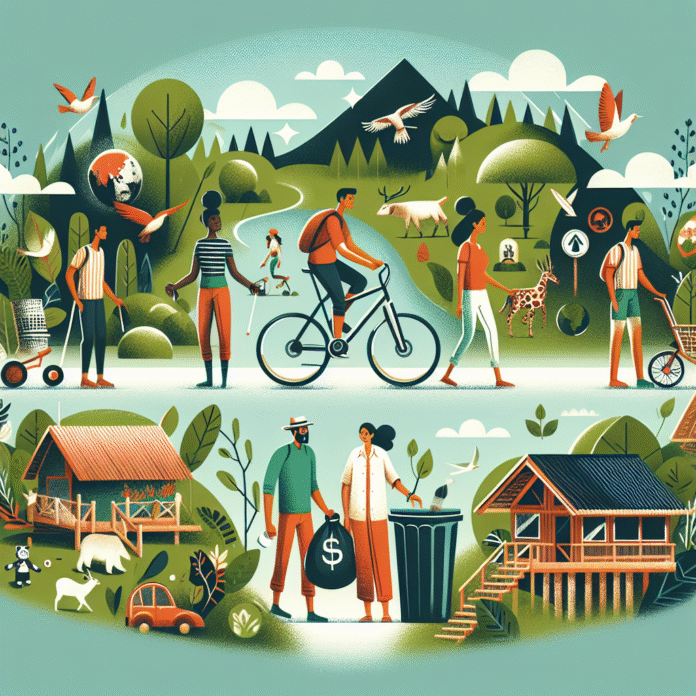In recent years, the tourism landscape has experienced a significant shift towards sustainability, reflecting a growing awareness of environmental issues, cultural preservation, and social impact. As travelers become more conscious of their choices, sustainable tourism is not just a trend but a movement that is reshaping the industry. Here are key aspects of this evolving landscape.
Defining Sustainable Tourism
Sustainable tourism refers to initiatives that minimize the negative impact of tourism on the environment, culture, and local communities while promoting economic viability. The goal is to create a balance where tourists can enjoy and appreciate natural and cultural resources without compromising their future availability.
Increased Demand for Eco-Friendly Travel
The demand for eco-friendly travel options is on the rise. According to various studies, travelers prioritize sustainable practices when choosing destinations and accommodations. This trend is especially pronounced among millennials and Generation Z, who are deeply concerned about climate change and environmental conservation. They are actively seeking experiences that contribute positively to the destinations they visit, favoring local providers and eco-friendly accommodations.
The Role of Technology
Technology plays a pivotal role in promoting sustainable tourism. Booking platforms and apps are increasingly providing options to filter accommodations based on their sustainability practices. For instance, travelers can find lodgings certified by recognized organizations for their environmental stewardship. Additionally, technology enables tourists to engage with local communities through virtual tours or apps that provide insights on cultural landmarks, traditional crafts, and indigenous practices.
Community-Based Tourism
Another significant trend within sustainable tourism is community-based tourism. This approach connects travelers with local communities, allowing them to participate in authentic cultural experiences. Travelers can engage with locals through cooking classes, artisan workshops, and wildlife conservation efforts. This not only enhances the travel experience but also supports local economies by directing funds to communities that rely on tourism for their livelihood.
Destinations Emphasizing Sustainable Practices
Many destinations worldwide are becoming frontrunners in sustainable tourism. Countries like Costa Rica are renowned for their commitment to eco-tourism, with numerous protected areas that promote biodiversity and conservation. Similarly, places like Bhutan have long prioritized sustainability, charging a daily fee to ensure that tourism remains at sustainable levels.
European cities such as Amsterdam and Copenhagen are also setting examples by promoting cycling, reducing vehicle traffic, and investing in green infrastructure. These initiatives make these cities not just more environmentally friendly but also more pleasant for residents and tourists alike.
The Impact of COVID-19
The COVID-19 pandemic has further accelerated the shift towards sustainable tourism. As travel restrictions were put in place globally, many people began to reevaluate their travel habits. The focus shifted from mass tourism to more localized, immersive experiences that emphasize safety and sustainability. Destinations that manage to adapt towards sustainable tourism practices will likely emerge stronger in the post-pandemic world.
Challenges Ahead
Despite the positive movements towards sustainable tourism, there are challenges to overcome. Issues such as overtourism, climate change, and the need for regulatory frameworks remain pressing. It’s crucial for governments, businesses, and travelers to collaborate on comprehensive strategies to ensure that tourism can thrive in a sustainable manner.
Conclusion
The rise of sustainable tourism represents a paradigm shift in how we approach travel. As more travelers seek out environmentally responsible options, the tourism industry is responding with innovations in eco-friendly practices, community engagement, and technology-driven solutions. By prioritizing sustainability, we can preserve the world’s natural and cultural treasures for future generations while enriching our own travel experiences. As the journey continues, the focus on sustainable tourism will be critical in shaping a more responsible and enjoyable future for global exploration.






